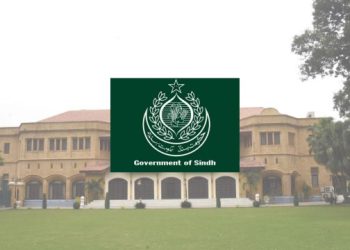ISLAMABAD: The federal government has notified the Supreme Court that military courts have commenced trials for individuals who allegedly attacked military installations and memorials on May 9, subsequent to the arrest of PTI chief Imran Khan.
In response to the Supreme Court’s August 3 order, an application was submitted, emphasizing the importance of conducting and concluding the trials to ensure that those deserving acquittal can be acquitted and those who merit minor sentences, having already served time in custody, can be released. The application also pointed out that if convicted, the accused individuals can utilize remedies available under the law.
Furthermore, it was mentioned in the application that the trials of these accused persons would remain contingent on the outcome of the apex court’s proceedings. This application has been presented as a five-member judge larger bench, headed by Justice Ijazul Ahsan, is scheduled to resume hearings on Monday to address the petitions contesting these trials.
In the previous hearing on August 3, a six-member bench noted that the Attorney General for Pakistan (AGP) Mansoor Awan had provided an assurance, based on instructions from the highest military authorities, that the court martial of civilians would not commence without notifying the apex court.
The order reiterated the commitment that trials would not begin without informing the court, with the AGP required to update the court on the matter during a specified hearing. The court would then make any appropriate orders after hearing all parties involved.
The government’s application reiterated that the trials of the accused persons would remain subject to the outcome of the apex court’s proceedings.
The application further outlined that a total of 102 individuals had been taken into custody for their alleged involvement in the attacks on various military installations and establishments, including Generals Headquarters Rawalpindi, Corps Commander House Lahore, PAF Base Mianwali, ISI Establishment Civil Lines Faisalabad, Sialkot Cantonment, ISI Establishment Hamza Camp Rawalpindi, Gujranwala Cantonment, and Bannu Cantonment.
These individuals had been in custody since May this year, detained under the Pakistan Army Act, 1952, in conjunction with the Official Secrets Act, 1923, for their involvement in the attacks on military installations.
Recently, a petitioner who had challenged the trial of his son in a military court following the May 9 incident sought the Supreme Court’s intervention to expedite the hearing of the case. Junaid Razzaq, through his counsel Salman Akram Raja, contended that military court trials had already commenced, a clear violation of the apex court’s order issued on August 3.
The petitioner requested an early hearing of the petition in the interest of justice, fearing irreparable loss if his son’s trial proceeded hastily.
The petitioner had previously submitted a separate application urging the Supreme Court to immediately halt military court proceedings in his son’s case. This application highlighted that contrary to the commitments made before the Supreme Court and in violation of its orders, trials of civilians before military courts had already begun. It was also noted that a field general court-martial had been convened for this purpose, with lawyers of various detainees being contacted.
The applicant/petitioner had presented this honorable court’s orders to military authorities, but to no avail. The plea further implored the top court to direct all relevant authorities not to proceed against the petitioner or any of his family members in violation of the law.
(Islamabad51_Newsdesk)














